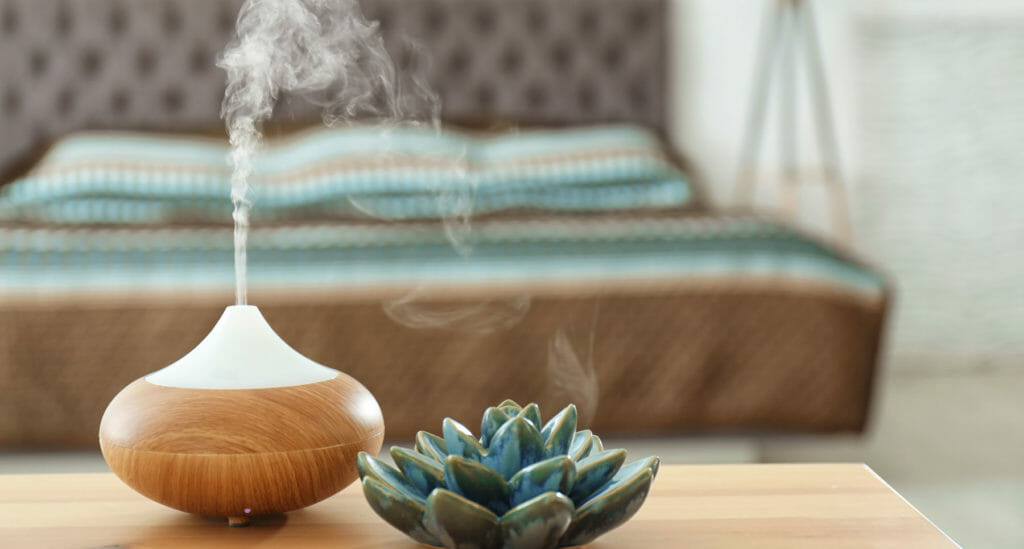

If you struggle to sleep and you’re looking for a natural sleep solution, you might be interested in learning about the best essential oils to help you get a sound sleep. I’m a big advocate of using natural mind-body strategies to deliver a better night’s sleep.
While essential oils may not cure sleep disorders, their soothing and relaxing qualities can help calm the body and mind, leading to a more restful sleep. If you already have a high-quality mattress that works for your body type, my recommendation is to try natural methods first to improve your sleep.
What Are Essential Oils?
Essentials oils are created by extracting plant concentrates in a way that retains their natural smell. Many companies claim to make “natural,” “pure” essential oils. The purity of essential oils can be measured by how natural the extraction process was and whether it uses synthetic additives. The best essential oils are extracted naturally without adding chemicals, which could cause more harm than good. The practice of aromatherapy uses essential oils to promote health and well-being, and a big component of our well-being is our sleep.
How Do Essential Oils Help With Sleep?
Studies have shown that essential oils help with relaxation and have soothing effects, while reducing stress, anxiety, and depression symptoms to help promote sleep. Some essential oils also have sedative effects to help you fall asleep faster. Some types of essential oils have been studied more than others. A growing body of research is exploring the effect of essential oils in reducing inflammation and regulating the immune system. With over 90 types of essential oils, it can be overwhelming to try to choose the best essential oils to help you sleep, but first it helps to consider what kind of sleep difficulty you’re having.
Can Essential Oils Treat Common Sleep Disorders?
Insomnia
Insomnia is characterized by difficulty falling asleep, and often involves waking up multiple times at night and not being able to fall asleep again. This leads to daytime sleepiness, which increases your risk of accidents and poor performance in your work.
While some essential oils can have a positive effect on your sleep, if you’re having trouble sleeping, start with lifestyle changes that target the root cause of your insomnia (see the list at the end of this article).
Sleep Apnea
Sleep apnea is a condition in which you run out of breath during sleep or stop breathing multiple times while you’re asleep. This can affect the ability of oxygen to reach your brain, resulting in a higher risk of heart disease and stroke. Waking up feeling tired after eight hours of sleep and unexplained memory loss are common early signs. In this case, addressing your sleep apnea with the help of a professional is more important than trying out essential oils.
How to Use Essential Oils for Sleep and Relaxation
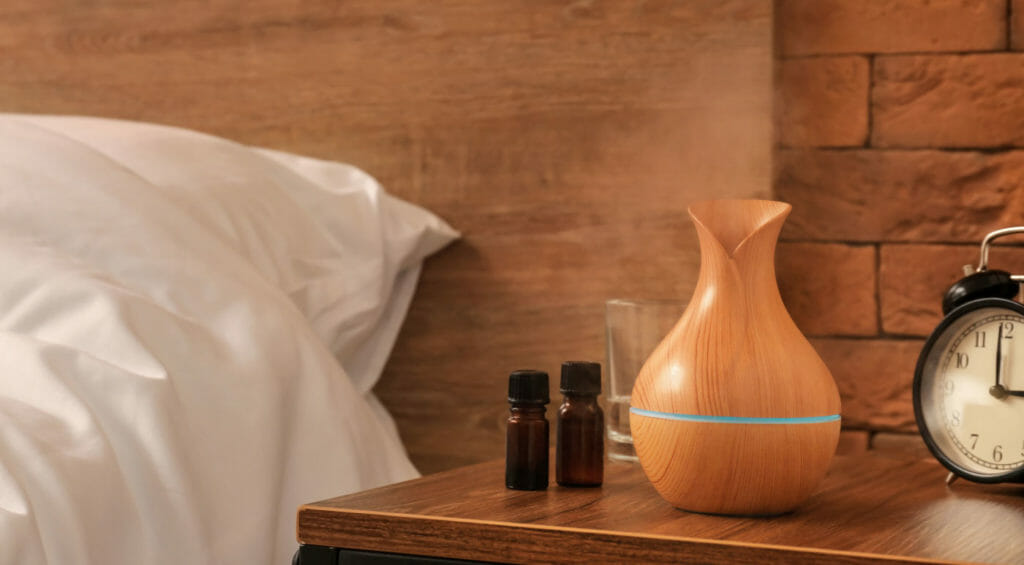
You can either inhale essential oils using a diffuser, or apply them directly on your skin. Applying essential oils to your skin in undiluted form can cause irritation, so you could try diluting them in a carrier oil or adding them to your bath.
Essential oils affect the limbic system, the emotional part of your brain. Pay attention to how the oils make you feel. If the first oil you try doesn’t smell great to you or makes you feel alert, it’s probably not right for you. Be patient, and experiment. You might even enjoy mixing different scents rather than just using one.
Safety When Using Essential Oils
Before using essential oils for the first time, it is best to consult your healthcare provider to make sure that you do not have any contraindications. This is important, as your body may have a unique reaction to certain essential oils. For example, in some people, sandalwood oil can stimulate the brain to stay awake instead of promoting sleep. Even if you know someone who uses a similar oil to help them sleep, it doesn’t mean that you will have a similar experience. Other important safety considerations include:
- Quantity: It is crucial to use the appropriate quantity of oil. Too little could just mean the oil makes no difference to your sleep, but too much could result in dangerous levels of sedation.
- Kids: It’s not recommended for kids to use essential oils to help them sleep, as the oils can cause a slow respiration rate and an increased level of sedation.
- Heat: Most essential oils are volatile and can easily be ignited, so it’s best to keep them away from any kind of heat source.
The 5 Best Essential Oils for Sleep
1. Lavender Oil
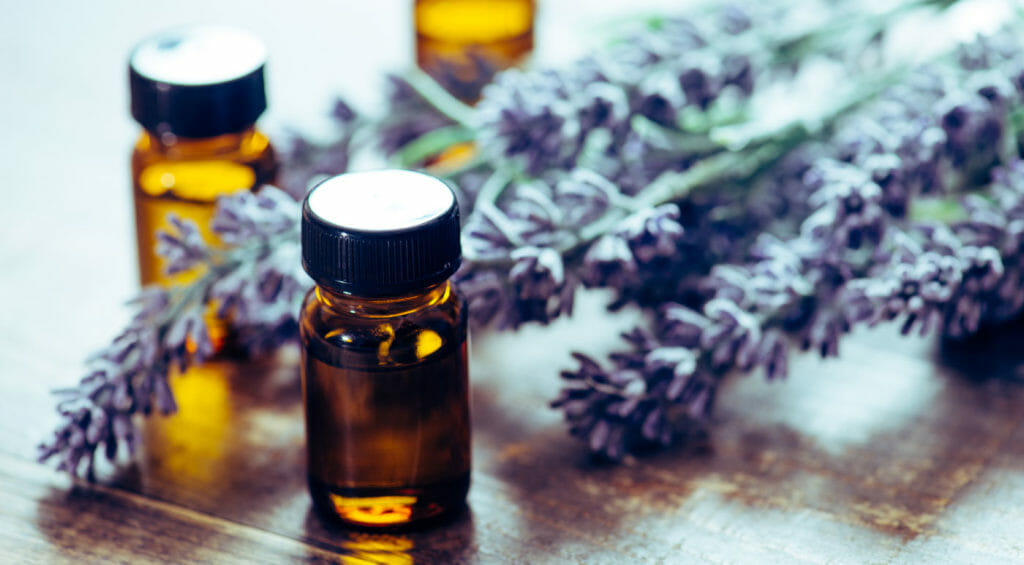
Chances are, you know someone who uses lavender oil, as it’s the most popular essential oil for sleep. As a result, lavender is widely studied with strong evidence for its effectiveness in increasing sleep duration, improving sleep quality and reducing daytime sleepiness in people with insomnia.
A number of research studies have also shown that lavender reduces anxiety symptoms, relieves pain, and has a therapeutic advantage in depression.
2. Sandalwood Oil
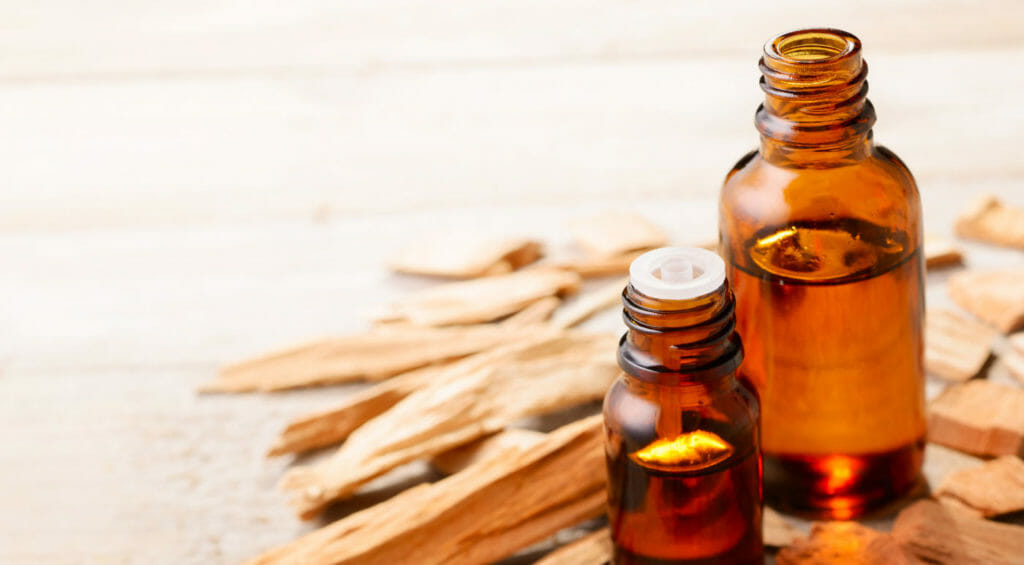
Sandalwood oil is extracted from the sandalwood tree, which has a rich earthy scent. Muscle tension and anxiety can keep you awake, and research shows that sandalwood is effective at muscle relaxation and relieving anxiety symptoms. Research also shows that sandalwood essential oil can produce a sedative effect, therefore promoting sleep.
3. Cedarwood Oil
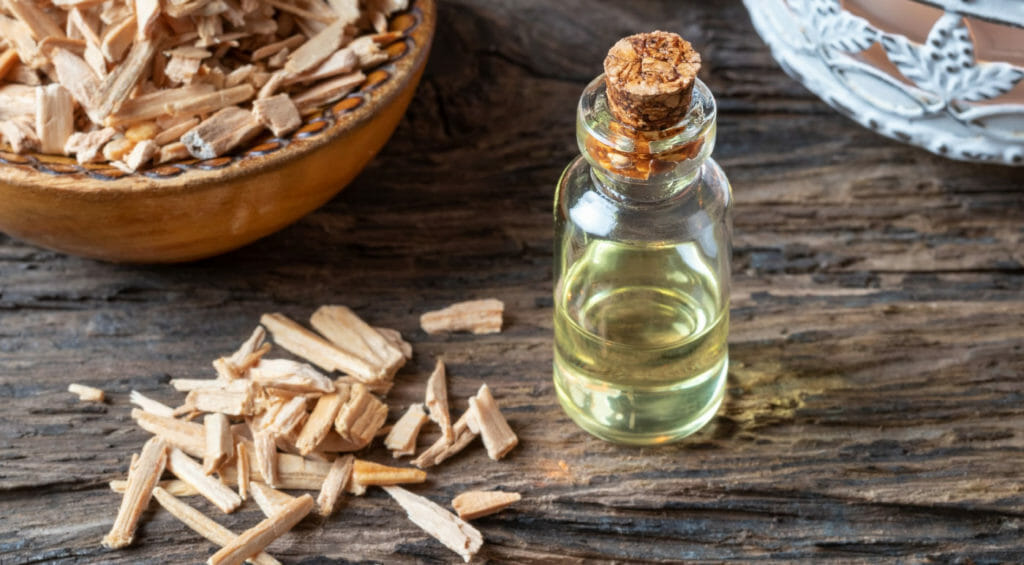
Cedarwood oil has sedative, anti-inflammatory, and relaxing properties. It also induces the release of melatonin, which makes it easier for you to fall asleep. Cedarwood oil is a very common sleep aid that is extensively used around the world.
Safety Precautions for Cedarwood Essential Oil: When used in high concentrations, cedarwood oil can cause some negative effects, including general irritation and uneasiness. Pregnant women and children should not use this essential oil.
4. Ylang Ylang Oil
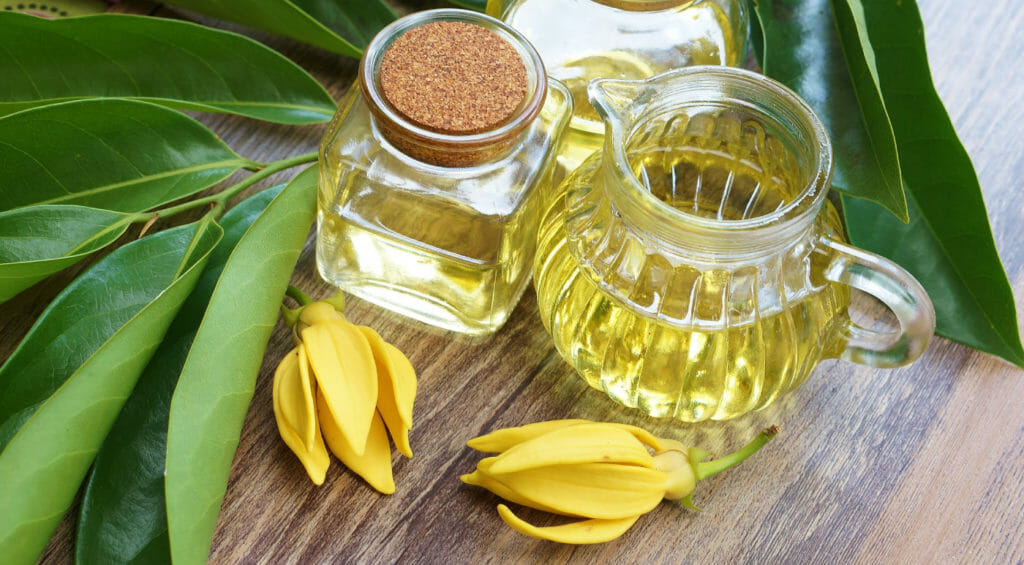
Extracted from fruits and floral plants, ylang ylang oil helps to reduce inflammation, which in turn has a soothing effect. It also reduces anxiety and mental stress, which results in better sleep. Ylang ylang blends well with other oils. It can stimulate sexual arousal in some people, so use it carefully.
5. Valerian Oil
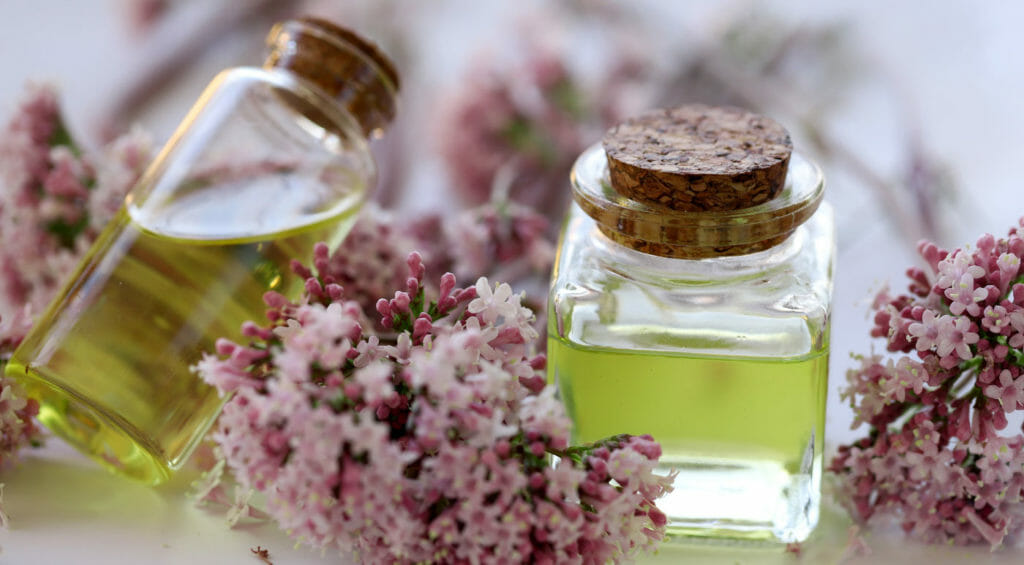
Valerian root has been widely used as a therapeutic treatment for insomnia, and valerian oil helps to improve the quality of your sleep. Valerian helps relieve anxiety and promote relaxation by increasing levels of GABA, a natural chemical that quiets your nervous system to promote relaxation and calm. Some of my clients have expressed that valerian smells like stinky feet, but you can mix it with other oils for a better smell.
Other Ways to Improve Your Sleep Naturally
- Get some sunshine every day
- Create a regular sleep schedule
- Create a regular winding-down routine
- Avoid long-term use of sleeping pills
- Avoid caffeine eight hours before your bedtime
- Turn off electronics two hours before bed
- Optimize your bedroom environment
- Avoid heavy or spicy meals within four hours of going to bed
- Exercise and move daily, but keep it light before bed
- Get to the root cause of your sleep problems
Your inability to sleep is not the problem — it is only a symptom. If these lifestyle interventions haven’t worked, it’s possible that there is an underlying cause for your broken sleep. Check with a sleep professional to try to determine why you’re having trouble sleeping.